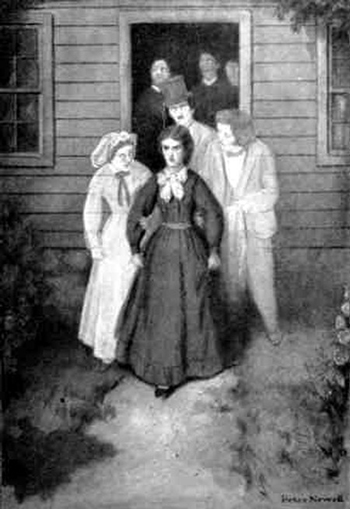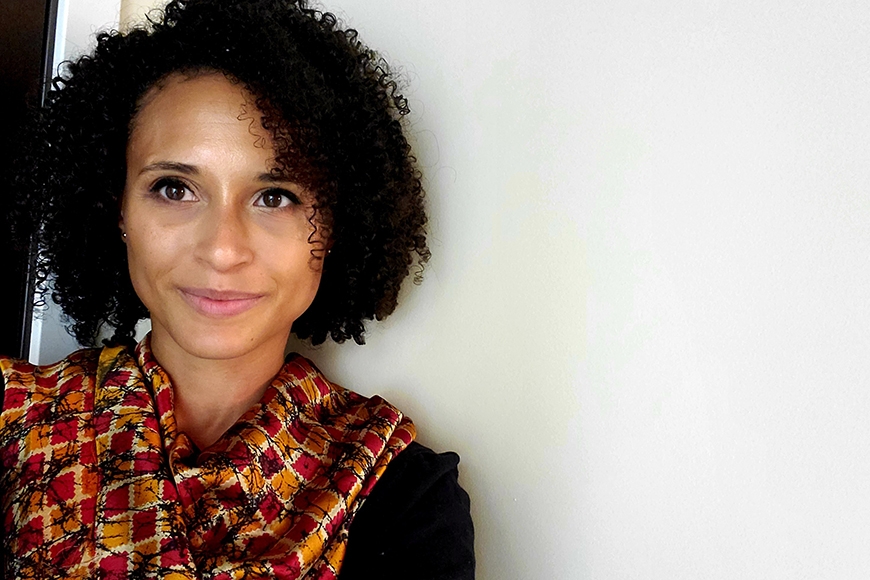New Fall Course on Disability in Nineteenth Centry Lit
“Disability has no simple stories, and it has no simple history in the United States,” says Jessica Horvath-Williams, President’s Postdoctoral Fellow in English for 2021-2022. In fact, she quips, her fall course “Disability and Nineteenth-Century US Literature” (ENGL 3090) could be titled “Eight Ways of Looking at Disability in the Nineteenth Century US.” The class offers students a chance to explore the complex stories and histories of ability, disability, and mental health through the 1800s.

The course reading will focus on short stories, essays, slave and asylum narratives, and historical documents, featuring diverse representations of disability. The image to the right is from Mary E. Wilkins Freeman’s short story “Luella Miller” which, Horvath-Williams notes, “is about a psychic vampire who murders a town full of people by getting them to do her housework. Yes, it is 100 percent as bizarre as it sounds.” The historical documents include “some very odd historical texts around reproductivity, disability, and free love; a medical-ish advice column or two; and some visual imagery related to freakshows in the US,” she adds. The class will pair such historical texts with literary works by the likes of Herman Melville, Harriet Prescott Spofford, Harriet E. Wilson, and Zitkala-Sa.
“There will be no papers or exams,” describes Horvath-Williams, who is co-chair of the University’s Critical Disability Studies Collective. “The skills developed in this course will be primarily personal knowledge-information management: how to create and build knowledge webs; how to curate data; how to use web-based tools to capture and evaluate information; and how to collaborate.”
ENGL 3090 will be delivered Tuesdays and Thursdays 1:00- 2:15 pm. Interested students can still register.
“Investigating the stories we tell and have told about and through disability requires that we balance history, close-reading, and the awareness of our own thought processes,” says Horvath-Williams. “We have to be able to hold multiple truths simultaneously without collapsing them into certainty or judgment.”
Horvath-Williams was the President’s Postdoctoral Fellow in Gender, Women, and Sexuality Studies at the University of Minnesota last year. For 2021-23, she will be helping to oversee the Interdisciplinary Collaborative Workshop “Refusing Disposability: Racial and Disability Justice Toward Another World.” Horvath-Williams' current project, “A Monster of Virtues: Female Ideality, (Dis)ability, and Nineteenth-Century Womanhood,” revises the history of disability, exploring how ideal womanhood served as a precursor for the development of three ideologies commonly critiqued by critical disability studies: the individual responsibility for health, the absence of futurity for disabled people, and the role of wage labor in the construction of (dis)ability. Her work has appeared in Studies in American Fiction. A healthcare activist-educator in the Twin Cities, she serves as Vice Chair of the Autistic Women and Nonbinary Network (AWN).



